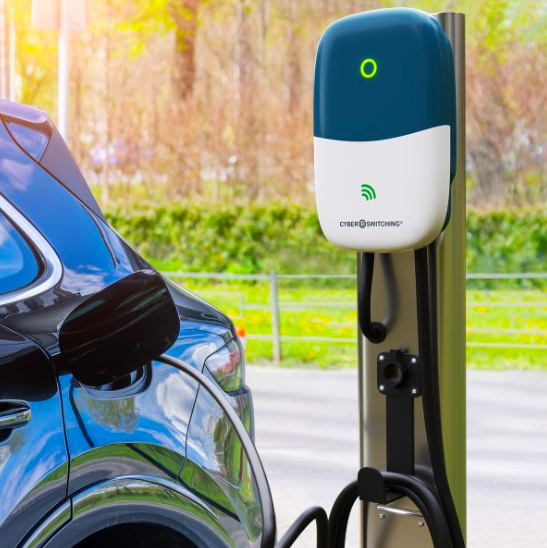The current sustainable development goals (SDGs) outline that global carbon emissions need to fall a staggering 45% by 2030 from 2010 levels and continue at a steep decline to achieve net-zero emissions by 2050. To try to achieve this as well as other SDGs, our world is doing many things to try and move more towards green energy—one of which is cutting down on gas-guzzling, carbon-emitting vehicles.
One of the latest reports by Bloomberg New Energy Finance shows that by 2040, 58% of global passenger vehicle sales will come from electric vehicles (EV), which refer to battery-electric vehicles and plug-in hybrids. This demonstrates a 40% year-on-year increase in recent years in the market. Unfortunately, however, EV charging stations across the US are few and far between and have become notorious for high pricing, difficult installation, and a lack of infrastructure and expertise.
This market need has even become a national priority, with President Biden’s recent Bipartisan Infrastructure Law,—where the US will invest $7.5 billion to build out a national network of 500,000 EV chargers, especially along highway corridors and within relevant community hubs.
Let’s take a look at one company that is helping to patch the disparities in America’s efforts towards greener energy use on the roads—helping to not only accelerate the adoption of EVs but reduce emissions, improve air quality, and create new jobs as well.
Driving the Future of Electric Vehicles
In 2021, over 6 million plug-in electric vehicles were sold across the globe—making for more than double 2020’s total. The transition to EV as the preferred mode of transportation is clear, but the need for more stations to keep pace is becoming increasingly dire.
According to a report from the US Department of Energy, there are currently more than 2 million EVs currently registered in the US. The ideal ratio of EVs to charging stations is 40 Level 2 charging ports and 3.4 DC fast chargers (DCFC) per 1,000 EVs. This means that EV sales need to grow at least ten-fold in the next decade, and EV charging stations will soon outnumber traditional gas stations.

Cyber Switching, a leader in intelligent power management solutions, recently launched its proprietary smart level-2 commercial EV charging station. With a strong focus on affordability and sustainability, Cyber Switching aims to make the transition to EVs easier, smoother, and even financially rewarding for big corporations, workplaces, commercial fleet owners, and building operators.
Founded in 1994, Cyber Switching has developed a unique method to combat the looming fear of maxing out the power grid’s limit, followed by the most reliable commercial EV charging station in the industry. Unlocking new revenue streams and optimizing installation through AmpUp’s Software Management platform, the product allows actors across industries to solve any electrical infrastructure challenges in installing EV charging stations.
This company, through its innovations in needed EV charging stations, is helping the industry to take substantial steps in eliminating the roadblocks toward a long-lasting country-wide charging infrastructure.
Innovating Beyond Fossil Fuels
All of this news seems to be coming right in the nick of time with gas prices spiking all over the globe. But this occurrence is nothing new to the world population, and it really is just the tip of the proverbial iceberg.
The fact is, there is a finite amount of fossil fuels available. On the other hand, however, in modern-day we have innovated a multitude of ways to generate electricity, and sustainably.
The implementation of efficient charging stations for EVs ultimately solves the market’s major pain points, which are the cost and inconvenience of electric charging stations needed to make EVs the predominant mode of transportation on the roads.
It has been estimated that the average range of an EV is expected to increase by 85 miles by 2030, which means by 2050, EVs will account for 4 in 5 car sales. Increasing the approachability of the inevitable transition to EVs is important in 2022 because we need to start building the future of what will be the next generation of driving.
This will be pivotal not only for the general shift of consumer behavior but for the planet’s longevity as well.
Disclosure: This article mentions a client of an Espacio portfolio company.












